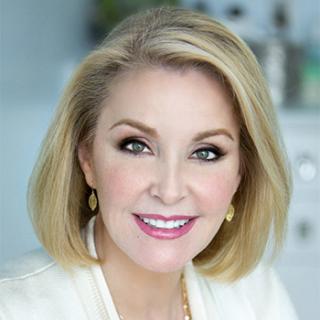Roughly three in five physicians are experiencing burnout amid the COVID-19 pandemic, an all-time high. That reality is not exclusive to those in practice, as research indicates that medical students are more likely to experience burnout and depression than other similarly aged people pursuing different careers.
Burnout is a long-term stress reaction that can lead to emotional exhaustion, depersonalization and feeling a decreased sense of personal achievement.
The AMA’s What I Wish I Knew in Medical School series offers medical students the chance to gain insights from some of today’s top physician leaders to better understand the challenges they will confront on their journey toward physician practice.
In this installment, Sandra A. Fryhofer, MD, chair of the AMA Board of Trustees and a practicing internist from Georgia, took time to discuss what students need to know about burnout, how to recognize the signs, and what to do if they are feeling burned out.
The pressure is real
“If you think about the nature of what we do, dealing with people who are sick, death and suffering, it's very stressful,” Dr. Fryhofer said. “Also, there's so much information now that young medical students have to absorb and learn.
One term that's been used to describe this is “curricularmegaly.” There's an excessive workload. And the reality is that medical students don't have control over their time, so they lose flexibility and that can make it hard to fix things, and that magnifies their stress.”
“I'm not sure that medical students are more prone to burnout today, but stress has always been there. Maybe we talk about it more now and that's a good thing. There's increased awareness.”
Burnout isn’t your fault
“Research shows this is a systems problem, not an individual problem,” Dr. Fryhofer said. “You can’t just exercise or meditate your way out of burnout. Policymakers need to do much more.”
“A thing I worry about with students is a lack of control and flexibility. Medical school deans and administrators need to think about that as they plan the programs for these students.”
Everyone gets stressed out
“Stress can show up in your fingernails,” Dr. Fryhofer said. “And if you're under a lot of pressure, you can notice nail pitting, shredding and ridging. Well, that happened to me during pathology. It was the hardest class as a second-year medical student.
“There was so much information to learn,” she added. “It was somewhat overwhelming. And I got these ridges in my nails, and they corresponded to when I had a pathology test. It was uncanny.”
Adapt to find outlets
“At the end of my third year of medical school, I was a physical mess,” Dr. Fryhofer said. “I had no time to exercise. I was exhausted. I looked in the mirror and I said: What is happening? I'd always gone to dance classes for exercise, but as a third-year medical student there was no time. There was no schedule. But I then joined a health club and I went to exercise every day. This health club was close to my home, so I had to change what I'd always done—and it helped.”
“Knowing self-care strategies can be helpful. One thing—when we talk about that curricularmegaly—is that organized study groups can really be helpful. They can reduce stress, anxiety and depression.”
Know the symptoms
“When I think of the symptoms of burnout, I think of emotional and physical exhaustion,” Dr. Fryhofer said. “Maybe the most worrisome one is decreased empathy toward patients and a low sense of personal accomplishment. There’s also data that indicates that burnout in medical students leads to an increase” in alcohol-use disorder.
Seek help
“Burnout is an impediment for reaching your full potential as a physician and as a leader, and it can threaten professional development,” Dr. Fryhofer said.
“Seek help. And this is so, so important. You can't avoid getting help because you fear the consequences—that help is more important than anything else. You get help. You turn your trajectory around and the rest will take care of itself.”
“I’ve seen a burned out resident address their stress and succeed. When I was a senior resident, I was assigned an intern who was having a tough time.
“On his previous rotation, he had been on call and was so stressed out that he just left the hospital, got on the bus and went home. I'm sort of glad he did because he was able to get out of a stressful situation and fortunately there was another intern on the team who could pick up the slack. We need to make sure our students and residents are working in an environment and culture in which they can communicate with their team if they need a break, so appropriate coverage can be arranged,” Dr. Fryhofer said.
“He was put on my service and ... I nurtured him. I supported him, and he did just fine.”
Keep your eye on the prize
“Being a physician is such an honor, but the road to getting there can be tough, tougher than it should be,” Dr. Fryhofer said. “Medical school is not easy. There's a lot to learn and the stakes are high.”
“On the other hand, being in this position is so rewarding. Medicine is a career that gives you amazing opportunities to help people in your communities and—through the work of organized medicine—to help people across the country live longer and happier and healthier.”





